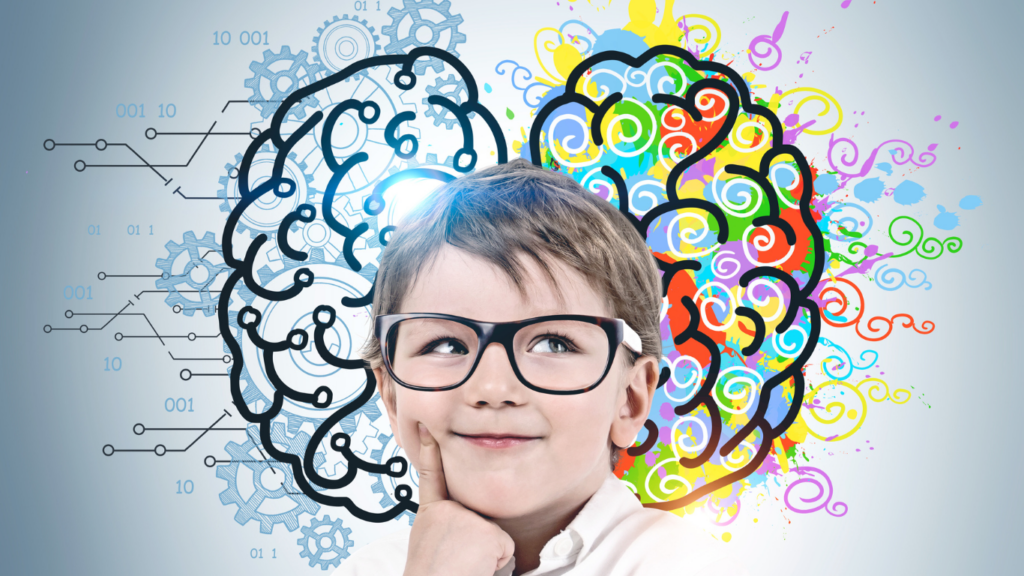Understanding how a child’s brain develops has always fascinated me. It’s incredible to think about how rapidly their minds grow and adapt, shaping who they’ll become. Recent research has uncovered groundbreaking insights into this complex process, revealing just how much early experiences and environments impact a child’s cognitive and emotional growth.
Understanding Child Brain Development
Child brain development begins before birth and progresses rapidly during the first years of life. Neural connections form at an estimated rate of 1 million per second in infants, according to the Center on the Developing Child at Harvard University. These connections create the foundation for:
- cognitive
- emotional
- social abilities
Environmental factors, including nurturing relationships and sensory-rich experiences, shape brain architecture. Positive interactions like responsive communication and physical affection support healthy development, while adverse conditions, such as neglect or chronic stress, disrupt neural pathways.
Critical periods exist when the brain is especially receptive to specific stimuli. For example, language acquisition peaks from birth to five years, while emotional and social skills are particularly influenced during early childhood.
Research highlights the importance of play in developing problem-solving abilities, self-regulation, and creativity. Unstructured play encourages children to explore, experiment, and build neural circuits essential for long-term adaptability.
Advances in neuroimaging have revealed how technology impacts developing brains. Excessive screen time, particularly before age two, has been linked to delayed language and social skills, while high-quality educational content promotes learning when used in moderation.
Recognizing these factors can guide caregivers and educators in providing environments that promote healthy brain development from the earliest stages.
Key Findings From New Research
Researchers have uncovered groundbreaking insights into how various factors influence child brain development. These findings highlight the intricate interplay between early experiences, genetics, and essential biological processes like sleep.
Impact of Early Experiences
Early experiences significantly shape a child’s brain architecture. Positive interactions, such as frequent verbal engagement and physical comfort, enhance emotional regulation and cognitive abilities. Sensory-rich activities, like reading and interactive play, boost neural connectivity. Conversely, chronic stress or neglect inhibits brain regions critical for learning and memory, as shown in studies from the Center on the Developing Child at Harvard University. This underscores the importance of fostering supportive environments to stimulate healthy development.
Role of Genetics Versus Environment
Both genetics and environment contribute to brain development, but new research indicates environmental factors can modify genetic expression. Epigenetics research reveals that nurturing actions, like affectionate caregiving, activate genes linked to resilience and learning. Stressful conditions, however, may trigger genetic responses tied to heightened anxiety or cognitive impairment. These interactions demonstrate how adaptable the brain’s development is depending on external influences.
Importance of Sleep in Brain Growth
Sleep is essential for neural growth and memory consolidation in children. During sleep, the brain processes daily experiences, strengthens synaptic connections, and organizes information. A study in “Nature Reviews Neuroscience” shows that children aged three to five require 10 to 13 hours of quality sleep to support their rapidly forming neural pathways. Sleep deprivation disrupts these functions, increasing risks of attention deficits and delayed cognitive progress. Establishing regular sleep routines can optimize brain development during the early years.
Technology and Its Effects on Child Brain Development

Recent research uncovers both positive and negative implications of technology on child brain development. While excessive use can hinder growth, strategic application supports cognitive and educational progress.
Screen Time and Cognitive Development
- Screen exposure influences cognitive development depending on quality, duration, and content.
- Studies from institutions like the American Academy of Pediatrics reveal that children under 18 months exposed to excessive screen time experience delayed language acquisition and reduced attention spans.
- Toddlers using screens without human interaction miss critical social cues necessary for communication.
- Interactive screen time with educational content, however, can enhance problem-solving skills and memory when capped at age-appropriate durations.
- The World Health Organization recommends no more than one hour of screen use daily for children aged two to five to balance technology use with sensory experiences and physical activity.
Digital Learning Tools and Their Benefits
Educational applications and platforms offer measurable benefits for developing brains when utilized properly. Research indicates that digital tools integrating gamified learning improve skill retention and engagement, particularly in math and reading for preschoolers. For instance, programs like ABCmouse and Duolingo Kids enhance early literacy and bilingual capabilities through structured interactivity.
Parental involvement boosts effectiveness, as guided use strengthens comprehension and emotional connection. When paired with traditional learning, digital tools cultivate foundational knowledge while fostering curiosity, creativity, and adaptive thinking.
Strategies to Support Healthy Brain Development
Research underscores the vital role of early experiences in shaping brain architecture. Creating supportive environments fosters optimal cognitive and emotional growth.
Encouraging Play and Creativity
Play stimulates cognitive adaptation and problem-solving. Unstructured play, like building with blocks or imaginative role-playing, strengthens neural pathways linked to planning and self-regulation. I incorporate age-appropriate toys and outdoor activities to promote sensory exploration and motor skill development. Exposure to creative tasks, such as drawing or storytelling, enhances executive functions and encourages innovation.
Building Strong Emotional Connections
Positive emotional bonds directly influence brain development. Responsive communication, like acknowledging a child’s expressions and engaging in active listening, boosts emotional regulation and social competence. Physical affection, such as hugging or holding, releases oxytocin, which fosters trust and strengthens neural connections. I ensure consistent routines and emotionally safe spaces for children to build security and resilience.
Providing Proper Nutrition
Nutrition impacts brain structure and function during early years. Nutrient-rich foods, including fatty fish, fruits, vegetables, and whole grains, provide essential fatty acids, vitamins, and minerals for neural growth. I avoid processed foods high in sugars and unhealthy fats, as these can impair learning and memory. Adequate hydration is also critical, as even mild dehydration can reduce attention and cognitive performance.



 Founder & Editorial Director
Founder & Editorial Director
